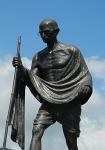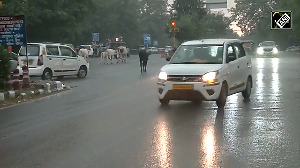India's space agency chief has slammed China for its anti-satellite missile test, terming the shooting down as one against international convention and said New Delhi should make efforts to exert pressure on Beijing not to undertake such strikes.
"They (China) should not have done that. It's against international convention. First of all, we are not supposed to weaponise outer space," Chairman of Indian Space Research Organisation G Madhavan Nair told PTI in Bangalore.
"Secondly, by killing a satellite, you create much more debris. Today about 8,000 objects are there in orbit. By blasting one satellite, you create another few hundred (objects)," he said.
"That way, I don't know why they did that. It's not a right thing," Nair said.
Nair, also secretary in the Department of Space, said India has the capability to conduct such a test, but categorically added that it has no intention of undertaking such an exercise.
Asked if India has the capability to conduct such a test, he said, "Why not? Any of our rockets can reach that altitude without any problem."
Nair said India is committed to use of outer space for peaceful purposes only.
He said with China conducting the test, India has to keep talking about it in international fora and bring some pressure on Beijing not to undertake such strikes.
China last month launched a missile to kill a satellite.
Earlier reports from the United States said that China shot down an ageing weather satellite by slamming into it a ground-based missile about 860 km above Earth.





